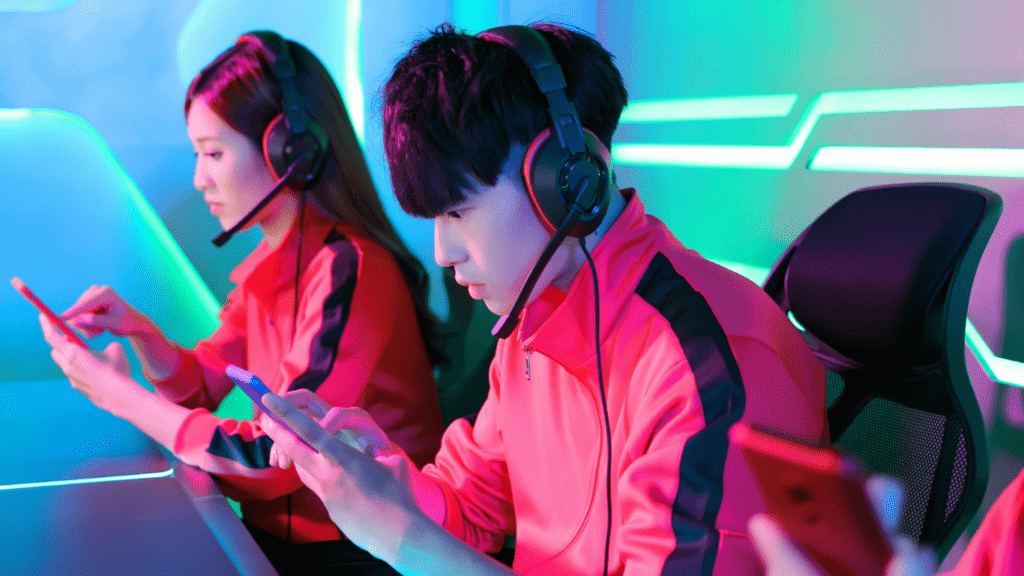In the fast-evolving landscape of the gaming industry, understanding the gender gap is crucial for shaping a more inclusive and diverse community. As a passionate gamer and industry enthusiast, I delve into the trends and responses that shed light on this pertinent issue.
Exploring the disparities in gaming participation and representation offers valuable insights into the challenges and opportunities faced by female gamers. From examining the latest statistics to dissecting the strategies implemented by industry leaders, I aim to provide a comprehensive overview of the current state of affairs.
Join me on this insightful journey as we unravel the complexities of the gender gap in gaming and explore the innovative approaches driving positive change within the industry.
Understanding the Gender Gap in Gaming
As a dedicated gamer and industry enthusiast, analyzing the gender gap in gaming is crucial for creating a more inclusive and diverse community. Let’s delve into the current statistics, trends, historical context, and the evolution of gender representation in gaming.
The Current Statistics and Trends
In the gaming industry, understanding the current statistics and trends related to the gender gap is essential. According to recent data, women make up about 46% of gamers globally. It’s evident that female gamers are a significant demographic in the gaming community, influencing not only the types of games developed but also the overall gaming culture.
Despite the increasing number of female gamers, disparities still exist. For instance, women are underrepresented in professional esports competitions, facing challenges such as gender bias and unequal opportunities. However, the industry is witnessing a positive shift with more initiatives focusing on gender inclusivity, aiming to bridge the gap and promote diversity in gaming.
Historical Context and Evolution
To fully comprehend the gender gap in gaming, we must examine its historical context and evolution. In the past, gaming was predominantly seen as a male-dominated activity, reflecting stereotypes and societal norms. This exclusionary environment deterred many women from actively participating in gaming communities.
Over the years, significant progress has been made towards gender equality in gaming. With the rise of female-led game development studios, diverse representation in games, and increased awareness of gender issues in the industry, there has been a notable shift towards inclusivity. These advancements highlight the evolving landscape of gaming, showcasing a more welcoming space for gamers of all genders.
Analyzing the historical context and evolution of the gender gap in gaming provides valuable insights into the challenges faced by female gamers and the strides the industry has taken to address these disparities. By understanding the past, we can better appreciate the progress made and the potential for further growth towards a more inclusive gaming community.
Industry Responses to the Gender Gap
In the gaming industry, various initiatives and campaigns have been launched to address the gender gap and promote inclusivity. These efforts aim to create a more welcoming environment for all gamers, regardless of gender.
Initiatives and Campaigns
I’ve observed an increase in initiatives and campaigns focused on diversity and inclusion in gaming. For instance, organizations like Women in Games and Global Gaming Women have been actively working to provide support, networking opportunities, and mentorship for women in the industry. These initiatives help foster a sense of community and empowerment, encouraging more women to participate in gaming and pursue careers in the field.
Changes in Game Design and Marketing
Game developers and publishers are increasingly incorporating diverse representation and inclusive features in their games. From character creation options that allow players to choose various gender identities to storylines that depict a wide range of experiences, there’s a noticeable shift towards making games more representative of diverse audiences. Marketing strategies have also evolved to be more inclusive, showcasing a broader spectrum of gamers in promotional materials and advertisements. These changes not only cater to a more diverse player base but also help break stereotypes and promote equality in gaming.
Impact of Gender Representation in Games

Analyzing the impact of gender representation in games is crucial for understanding its effects on players and broader cultural implications. Gender portrayal in games can significantly influence players’ experiences and perceptions, shaping their interaction with gaming content and the gaming community.
Effects on Players
As a player, engaging with games that depict diverse and inclusive gender representation can enhance my gaming experience by fostering a sense of belonging and representation. Seeing characters that resonate with my identity and experiences can create a more immersive and relatable gaming environment, leading to increased enjoyment and emotional connection with the game.
On the contrary, limited or stereotypical gender representation in games can alienate players and perpetuate harmful stereotypes, affecting their engagement and enjoyment. Experiencing gender bias or lack of representation may result in a feeling of exclusion and disconnect from the gaming community, impacting the overall gaming experience negatively.
Broader Cultural Implications
Beyond individual player experiences, the representation of gender in games has broader cultural implications. Games serve as a mirror reflecting societal norms and values, influencing and shaping cultural perceptions of gender roles and identities.
By promoting diverse gender representation in games, developers have the opportunity to challenge stereotypes, promote inclusivity, and contribute to positive social change. Embracing diverse gender portrayals can help break down barriers and create a more inclusive gaming landscape that celebrates and respects the diversity of its players.
Understanding the broader cultural implications of gender representation in games is essential for fostering a gaming industry that prioritizes inclusivity, diversity, and equality, ultimately creating a more welcoming space for all gamers.
Efforts Towards Inclusivity
As the gaming industry progresses, efforts towards inclusivity have become increasingly prominent. Here, I’ll delve into prominent voices and movements advocating for diversity and highlight both success stories and challenges in achieving inclusivity.
Prominent Voices and Movements in Gaming
Recognizable Figures:
-
- Anita Sarkeesian: Instrumental in raising awareness about gender disparities in gaming.
- Brianna Wu: Advocate for gender inclusivity and has sparked crucial conversations in the industry.
Key Movements:
-
- #WomenInGames: Empowers female gamers and promotes gender inclusivity.
- #GirlsWhoGame: Provides platforms for women to share experiences and advocate for greater representation in gaming.
These voices and movements have been pivotal in pushing for tangible changes and fostering a more inclusive gaming landscape.
Success Stories and Challenges
Success stories in promoting inclusivity in gaming abound, showcasing the industry’s capacity for change. Games like “Life is Strange” and “The Last of Us Part II” have received acclaim for their nuanced portrayals of gender and diverse characters, resonating with players worldwide. These successes demonstrate the marketability and creative potential of inclusive gaming content.
However, challenges persist in achieving full inclusivity. Despite progress, instances of backlash and resistance to diverse representation in games are still prevalent. Addressing these challenges requires ongoing commitment from developers, players, and the industry as a whole to foster a truly inclusive gaming environment for everyone.




